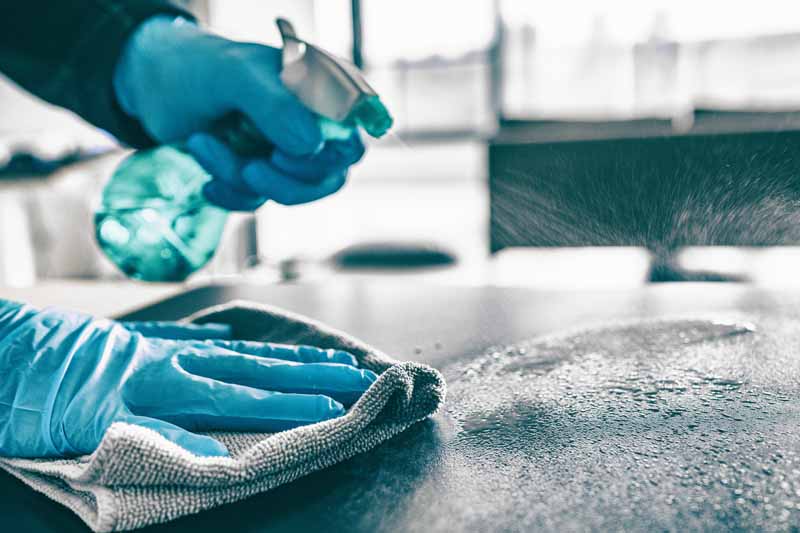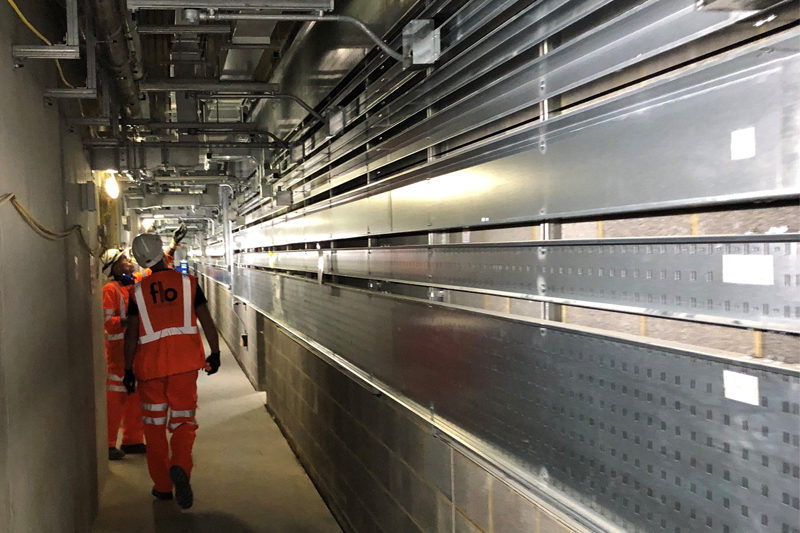Chris Mayne, Sales Manager IIP at HellermannTyton, discusses the important role manufacturers have in providing safe and hygienic products for customers within a growing antibacterial materials and coatings market.
Antibacterial product demand is expected to increase rapidly in the coming years as a result of the strict measures in place to control the spread of COVID-19 and prevent future outbreaks. There’s no denying that the past year has been difficult; many businesses have closed, key employees have been put under pressure, and supply chains have come to a halt. As UK businesses resume normal operations, supply chains are beginning to emerge from the snags and delays caused by the various lockdowns.

Manufacturers can now produce more products and distribute to wholesalers and customers as supply chains kick back into action. In the midst of the chaos of restrictions and material shortages, there has been a massive increase in the production of antibacterial solutions to enhance safe, hygienic workplaces.
The antibacterial materials and coatings market was valued at more than £2 billion in 2017 and it is expected to register a compound annual growth rate of around 12.5% over 2018-2024, reaching £5 billion by the end of 2024.
Manufacturer’s responsibility
In order to provide safety and reliability, manufacturers want to provide first class products to wholesalers and customers. Despite the fact that safety has always been a priority in manufacturing, it is now more important than ever. With that comes a certain amount of responsibility for the well-being of end users.
Product manufacturers look to ensure that all products are designed and built safely, and this includes all elements of health and safety including reducing the transmission of bacteria when using the finished product. Antibacterial products have proven to be beneficial in a variety of industries, ranging from education to healthcare. These products keep surfaces bacteria-free without the need for frequent cleaning, which is useful when cables are used in difficult-to-reach areas, for example, behind desks or on top of cabinets.
An antibacterial additive is a substance that contains an appropriately registered antimicrobial agent. Integrated at the stage of manufacture, an antibacterial additive will provide around-the-clock product protection from the growth of bacteria.
“The antibacterial materials and coatings market was valued at more than £2 billion in 2017 and it is expected to register a compound annual growth rate of around 12.5% over 2018-2024, reaching £5 billion by the end of 2024.”
Antibacterial properties
Antibacterial materials contain antimicrobial agents that can inhibit or kill bacteria on their surface or in their environment and come in the form of antimicrobial polymers, antibacterial plastics, antimicrobial nanomaterials, and antimicrobial ceramics. They all have a few features in common, regardless of the material: they’re safe to use, non-toxic and not susceptible to decay. They are also stable for extended periods and offer a broad range of antimicrobial activity.
Sneezing or coughing produces airborne droplets that spread infectious agents. These bodily fluids can settle on surfaces, permitting person-to-person transmission if someone comes into contact with them. There’s an endless list of bacteria that cause illness in humans, one common bacteria is E. Coli (Escherichia Coli). This bacteria has the potential to cause infection even if you ingest only small amounts. Potential sources of exposure include contaminated food or water and person-to-person contact.
Methicillin-resistant Staphylococcus aureus (MRSA) refers to a group of bacteria that are generally resistant to some antibiotics. Generally, they do not cause any harm however can cause skin infections and in some cases pneumonia.
Antibacterial products have shown to prevent the growth of bacteria like E. Coli and MRSA, therefore, eliminating the risk of transmission between people and products.
Change together
Antibacterial technology has been seen as an additional component in plastics over the last year as it has use in a wide range of applications. Antibacterial modified plastics can aid in the fight against bacteria in a variety of ways and it’s not just limited to face masks or personal protective equipment. HellermannTyton has been working over the past year to develop and supply a new range of antibacterial products for customers, providing them with safe and hygienic products ranging from Spiral Bindings, Helawrap, Convoluted Tubing and Grommet Strips.
HellermannTyton’s antibacterial range provides protection against all bacteria, ensuring no bacteria is able to survive on the surface of the product. This is especially important in hard-to-reach places, particularly in environments where cleanliness and the prevention of contamination is crucial.
HellermannTyton has been working closely with customers during the pandemic, helping them navigate these challenging times with support and product innovation. Change runs in our veins, and we’re ready to assist you right now with customised solutions and expert advice. For more information on HellermannTyton’s antibacterial range please visit https://www.hellermanntyton.co.uk/products/product-highlights/anti-bacterial





